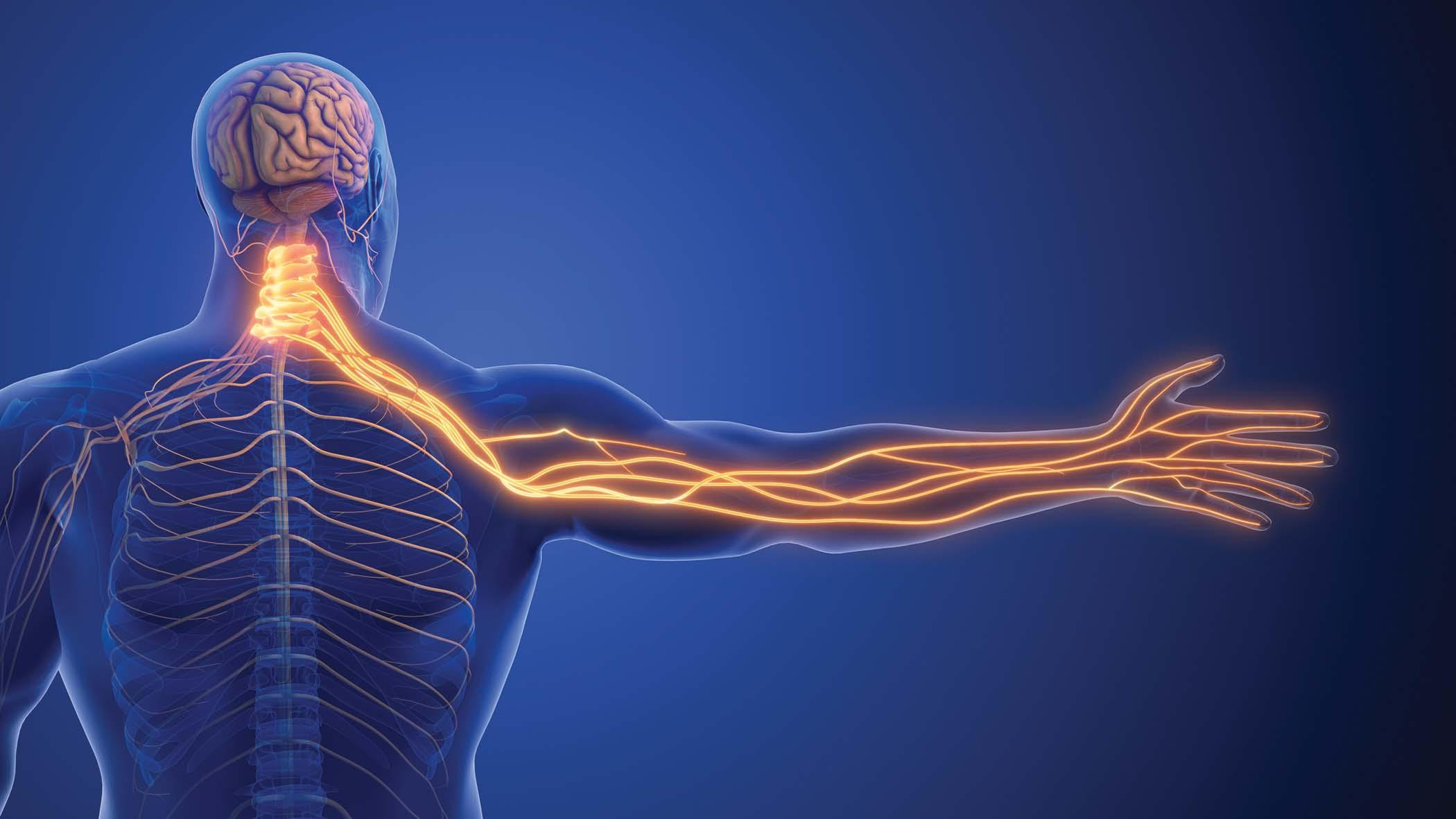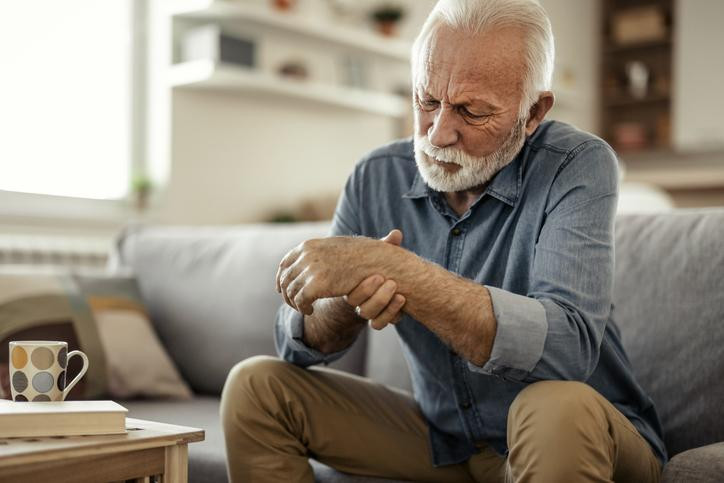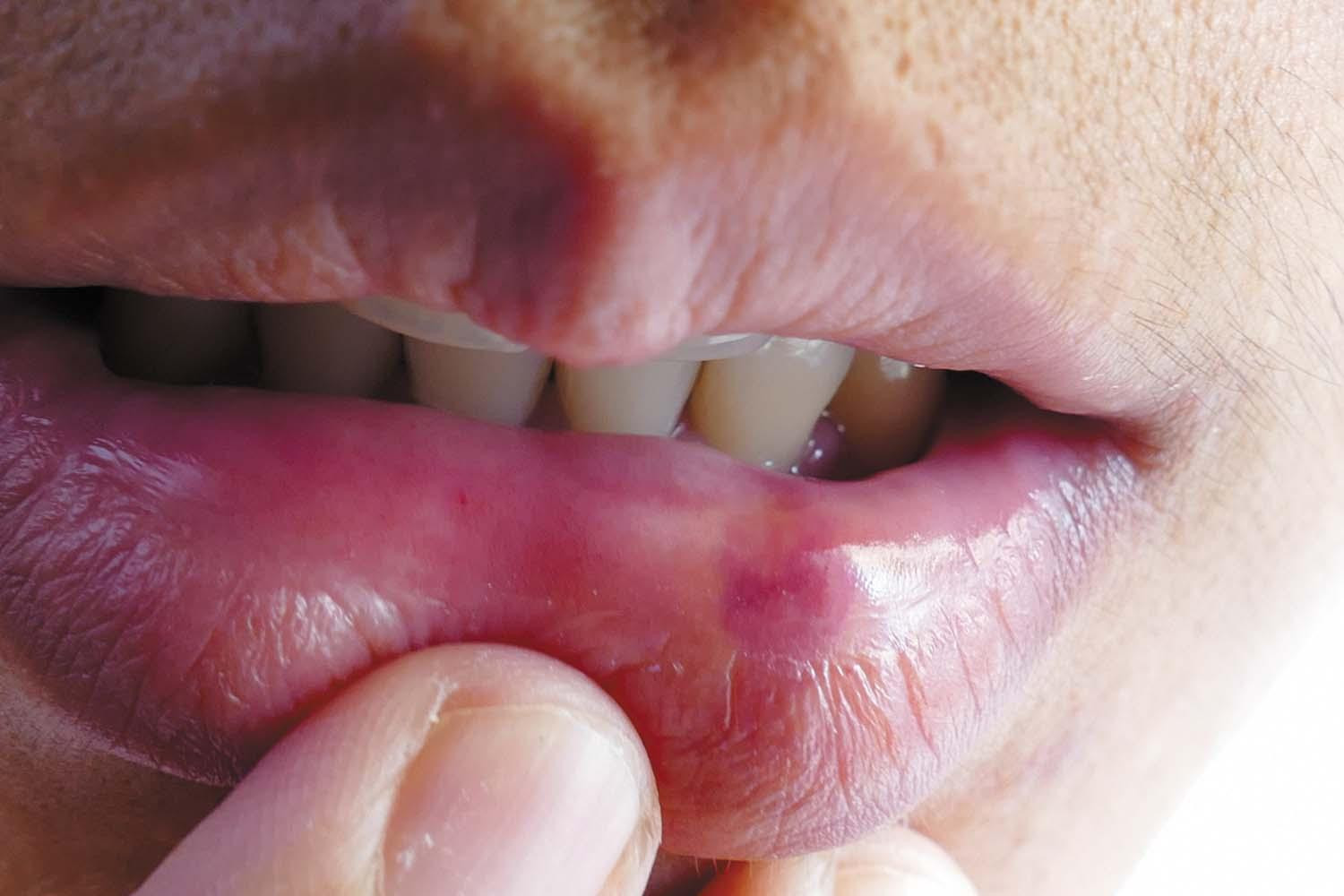
What are somatic workouts?

How to curb your stress eating

How to spot Parkinson’s disease symptoms

8 simple ways to reduce ultra-processed foods in your diet

Heart failure symptoms in women: How they’re different

GERD diet: Foods to avoid to reduce acid reflux

Strong is the new skinny

Everyday habits that sneakily weaken your bones

Don’t wait to get help for back pain

Correcting how you walk may ease osteoarthritis knee pain
Nerve disorders Archive
Articles
Avoiding triggers for a common cause of fainting
Vasovagal syncope, a common cause of fainting, occurs when the vagus nerve becomes overstimulated in response to triggers such as stress or dehydration. Certain strategies, such as lying down and elevating the legs, help people avoid passing out.
Punch back against pinched nerves
A pinched nerve occurs when something compresses or irritates a nerve. This can cause pain, tingling, or weakness in areas like the neck, back, or wrist. Rest and home remedies can help, but physical therapy and medication are sometimes needed.
Analysis highlights best treatments for neuropathic pain
A 2025 analysis found that tricyclic antidepressants, the anticonvulsants gabapentin (Neurontin) and pregabalin (Lyrica), and serotonin-norepinephrine reuptake inhibitors, such as duloxetine (Cymbalta) were the most effective drug treatments for neuropathic pain.
Burning mouth syndrome: The scorching reality
Burning mouth syndrome affects about 2% of people, with women up to seven times more likely than men to be diagnosed. Symptoms include burning sensations in the lips, mouth, or throat as well as stabbing pain, tingling, a sour or metallic taste, or the sense that something is crawling inside the mouth. Women’s hormone dips during perimenopause and beyond may play a role in the condition, and stress and anxiety are also considered risk factors. To confirm the diagnosis, doctors must first rule out other potential causes of symptoms.

What are somatic workouts?

How to curb your stress eating

How to spot Parkinson’s disease symptoms

8 simple ways to reduce ultra-processed foods in your diet

Heart failure symptoms in women: How they’re different

GERD diet: Foods to avoid to reduce acid reflux

Strong is the new skinny

Everyday habits that sneakily weaken your bones

Don’t wait to get help for back pain

Correcting how you walk may ease osteoarthritis knee pain
Free Healthbeat Signup
Get the latest in health news delivered to your inbox!
Sign Up







